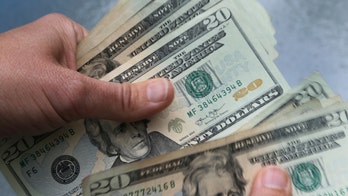Conservative activists from around the country are gathering in Washington on Saturday, hoping to continue their momentum in shaping the national debate on everything from health care to White House staffing.
The demonstrators, who plan to march up Pennsylvania Avenue to the Capitol, are drawing their passion not from Bush-era fights over terrorism or gay marriage, but rather from Reagan-era debates over big government programs. The event comes on the heels of antitax events, dubbed tea parties, in April, and a series of congressional town-hall meetings nationwide last month that elicited angry criticism of health-care proposals favored by President Barack Obama and his Democratic allies.
"I can't figure out to save me what [Mr. Obama and the Democrats] are trying to accomplish, unless they want socialism," 73-year-old Joseph Wright, a retired paper-mill worker, told The Wall Street Journal. Wright rode from Tallahassee, Fla., to Washington this week on one of the many chartered buses bringing in demonstrators from states as far-flung as Massachusetts and Arkansas.
Saturday's rally comes just a few months after Mr. Obama's victory seemed to have left the conservative movement in disarray. But in recent weeks, critics of the administration's programs and spending have succeeded in putting Mr. Obama on the defensive, threatening his health-care drive, prompting parents to boycott a routine presidential speech to schoolchildren and forcing the resignation of a White House adviser with a left-leaning past.
While the movement has gotten considerable attention, it is unclear just how broad it is. Both conservatives and liberals Friday tried to manage expectations, hoping to claim a surprisingly high or low turnout after the event.
White House officials on Friday professed to know nothing of the planned demonstrations. White House Press Secretary Robert Gibbs queried reporters about the planners and their issues. "I don't know who the group is," he said with a shrug.
Other Democrats suggested the protesters are embittered, fringe conservatives fueled by radio and TV talk-show hosts. "There's a lot of energy, but it's negative energy," said Democratic strategist John Lapp. "At the end of the day, Republicans are left with bomb-throwing, screaming, frothing and a lot of opposition."
























